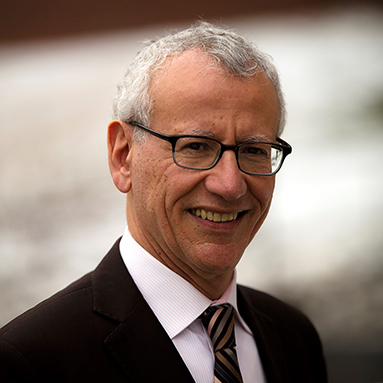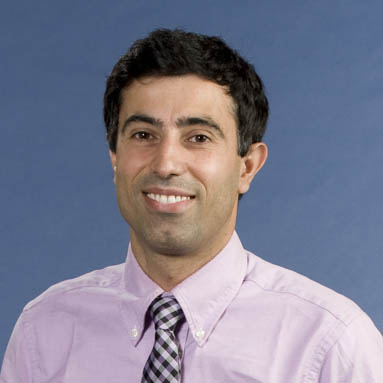Master of Architecture

Green Hill Park Snack Shack: AREN 3022 C’23 – Architectural Design Studio V: Joseph McNeill & Will Fallon

Design Studio 4, Class of 2025

Design Studio 3, Class of 2025

Solatrium: WPI’s entry for the 2019 Department of Energy Solar Decathlon Competition Ben Guerir, Morocco

MQP: Brenna Hannam, Tea Manager, Anum Sears, Dimitris Graikos, Class of 2025

Chapel By the Water: AREN 3022 C’23 – Architectural Design Studio V: Sebastian Villacorta & Dreivone Townsend

Chapel By the Water: AREN 3022 C’23 – Architectural Design Studio V: Sebastian Villacorta & Dreivone Townsend

Green Hill Park Snack Shack: AREN 3022 C’23 – Architectural Design Studio V: Joseph McNeill & Will Fallon

Design Studio 4, Class of 2025

Design Studio 3, Class of 2025

Solatrium: WPI’s entry for the 2019 Department of Energy Solar Decathlon Competition Ben Guerir, Morocco

MQP: Brenna Hannam, Tea Manager, Anum Sears, Dimitris Graikos, Class of 2025

Chapel By the Water: AREN 3022 C’23 – Architectural Design Studio V: Sebastian Villacorta & Dreivone Townsend

Chapel By the Water: AREN 3022 C’23 – Architectural Design Studio V: Sebastian Villacorta & Dreivone Townsend

Green Hill Park Snack Shack: AREN 3022 C’23 – Architectural Design Studio V: Joseph McNeill & Will Fallon
Master of Architecture
The Master of Architecture (M. Arch.) is a professional degree program that prepares graduates for the practice of architecture. The program balances core disciplinary competency with design experimentation, to explore creative architectural and engineering solutions that address societal and environmental concerns and opportunities for the built environment and the making of buildings. Emphasis is placed on the completion of a design thesis where students learn to synthesize the social, environmental, and technical thinking through informed design practice. The thesis project is supported by coursework that emphasizes the broadening of technical and theoretical exploration of design and supporting topics. Students develop a tailored curriculum in close collaboration with a faculty advisor.
Integrate your Passions for Architecture and Engineering
The practice of architecture and engineering typically follow two distinct education pathways that lead to different forms of licensure in the US, however, there is substantial and increasing overlap in the knowledge base and skills essential to either discipline. Global challenges, such as climate change and growing energy dependencies are intensifying the need for professionals astute to both fields. The professional Master of Architecture program at WPI is designed for students seeking to embrace their passions for both architectural and engineering design.
Track 1:
This admission track is designed to work in conjunction with our existing 4-year undergraduate BS degree in Architectural Engineering. The combined BS-AREN/M. Arch program has a total expected residency of 5 years, which is on a par with traditional accredited undergraduate programs in architecture but offers the unique benefit of dual accreditation (see accreditation information below). Upon graduation, you can decide to become a registered architect or engineer, or both, depending on your career goals and aspirations. WPI is the only institution in the US offering such integrated 5-year program. Admission to the M. Arch program is decided by the program committee during your 3rd year of the undergraduate program.
M. Arch Course Requirements
| Undergraduate Course Requirements | Credit Hours | |||
| Mathematics, Sciences, and Supplemental Sciences | Mathematics | MA 1021 | Calculus 1 | 3 |
| MA 1022 | Calculus 2 | 3 | ||
| MA 1023 | Calculus 3 | 3 | ||
| MA 1024 | Calculus 4 | 3 | ||
| MA 2051 | Ordinary differential equations | 3 | ||
| MA 2071 | Matrixes and Linear Algebra | 3 | ||
| MA 2611 | Applied Statistics | 3 | ||
| Basic Science | CH 1010 | Chemical Properies and Bonding | 3 | |
| PH 1110 | Mechanics | 3 | ||
| PH 1120 | Electricity and Magnetism | 3 | ||
| Supplemental Science | PH 2101 | Thermodynamics | 3 | |
| ER 3004 | Fluid Mechanics | 3 | ||
| Architectural and Engineering Design | Architectural Design Studios | AREN 2002 | Architectural Design I | 3 |
| AREN2004 | Architectural Design II - Light and Lighting systems | 3 | ||
| AREN 3002 | Architectural Design III | 3 | ||
| AREN 3020 | Architectural Design IV - Building Energy Simulation | 3 | ||
| AREN 3022 | Architectural Design V - Building Envelope Design | 3 | ||
| Major Qualifying Project (Undergraduate Capstone Design Project) | MQP | Major Qualifying Project | 3 | |
| MQP | Major Qualifying Project | 3 | ||
| MQP | Major Qualifying Project | 3 | ||
| Building Engineering and Technology | Materials and Methods of Construction | AREN 2023 | Introduction to Architectural Engineering Systems | 3 |
| Building Structural Systems | CE 2000 | Analytical Mechanics 1 | 3 | |
| CE 2001 | Analytical Mechanics 2 | 3 | ||
| CE 2002 | Introduction to analysis and design | 3 | ||
| Building Structural Systems (Students are required to select at least 2 additional courses from this list) | CE 3006 | Design of steel structures | 6 | |
| CE 3008 | Design or reinforced concrete structures | |||
| CE 3010 | Structural engineering | |||
| Professional Practice (Students are required to select at least 2 courses from this list) | CE 3025 | Project Evaluation | 6 | |
| CE 3020 | Project Management | |||
| CE 3022 | Legal Aspects of Professional Practice | |||
| Building Mechanical Systems | AREN 3024 | Building Physics | 3 | |
| AREN 3003 | Introduction to HVAC design | 3 | ||
| AREN 3006 | Advanced HVAC design | 3 | ||
| Building Electrical and Lighting Systems | AREN 2025 | Building Electrical Systems | 3 | |
| History and Theory of Architecture | AR 2114 | Modern Architecture in the American Era, 1750-2001 and beyond | 3 | |
| Students are required to select at least 2 additional History and Theory courses from this list | AR 2115 | Topics in Architecture Since 1960 | 6 | |
| AR 3112 | Modernism, Mass Culture, and the Avant-Garde | |||
| CE 3070 | Urban and Environmental Planning | |||
| CE 4071 | Land use Development and Controls | |||
| ENV 2201 | Planning for Sustainable Communities | |||
| ENV 2710 | Designing for Climate Resilience and Justice | |||
| ENV 3100 | Adventures in Sustainable Urbanism | |||
| HI 1311 | Introduction to American Urban History | |||
| HI 2310 | Topics in Urban History | |||
| HI 331X | Urban Ecology and Environmental Justice | |||
| IGS 501 | Theorizing Place, Community, and Global Environmental Change | |||
| General Studies | Humanities and Arts | HU 3900 | Inquiry Seminar | 3 |
| HUA electives | 12 | |||
| Social Sciences | SS Electives | 6 | ||
| Interactive Qualifying Project | Interactive Qualifying Project | 9 | ||
| Physical Education | 3 | |||
| Free Electives | 3 | |||
| UNDERGRADUATE Semester Credit Hours TOTAL | 141 | |||
| Graduate Course Requirements | Credit Hours | |||
| Research Seminar | ARCH 500 | Thesis Research Seminar | 3 | |
| PROFESSIONAL PRACTICE (2 courses) | CE 501 | Professional Practice | 3 | |
| Required Professional Practice Elective | 3 | |||
| FOCUS ELECTIVES | Focus Elective | 3 | ||
| Focus Elective | 3 | |||
| Focus Elective | 3 | |||
| DESIGN THESIS | ARCH 599 | Design Thesis | 12 | |
| GRADUATE Semester Credit Hours TOTAL | 30 | |||
| TOTAL semester credit hours of combined undergraduate and graduate coursework | 171 | |||
Track 2:
This admission track is designed for applicants that earned a baccalaureate degree in other fields, in which case the duration of study will depend on your previous education and experiences. Admission to the M. Arch program is decided by the program committee on a case-by-case basis.
Curriculum
The Master of Architecture program offers a unique interdisciplinary experience, one that includes coursework in subjects including architectural and engineering design, the history and theory of architecture, and professional practice. The curriculum is designed to produce graduates that have sufficient breadth and depth in all aspects important to the practice of architecture. The program culminates in a graduate design thesis that entails creating and advancing a comprehensive architectural project that exhibits adequate scope and intricacy. Thesis topics are developed in close collaboration with a thesis committee, which is composed of a primary thesis advisor and an advisor in a focus area. The design thesis is underpinned by elective courses that are thematically aligned with a focus area, allowing students to broaden their skills and develop a meaningful grasp of a thematic area of interest. To ensure this depth, students complete at least three courses of thematically related work. Different focus areas are possible and currently include a focus on structures, and climate adaptation. Other focus areas can be developed, and students can propose alternative thematically related coursework with sponsorship from a thesis advisor and approval of the program committee.
Graduate Curriculum
The graduate curriculum is composed of 2 professional practice courses (6 credits), a thesis research seminar (3 credits), 3 concentration courses (9 credits), and a design thesis (12 credits):
Professional Practice Courses (6 Credits)
- CE 501. Professional Practice (required - 3 credits)
- CE 580. Advanced Project Management
- CE 584. Advanced Cost Estimating Procedures
- CE 583. Contracts and Law for Civil Engineers
Thesis Research Seminar (3 Credits)
This seminar prepares students to conceive and develop a graduate thesis project proposal that is rooted in the originality and innovation of research and design practice. The course is structured with seminars of invited speakers, discussions of readings, workshops, student presentations, and thesis proposal development. The seminar may include a travel component. The topics vary each year with the focus on research methodologies and broad issues relevant to the discipline of architecture.
Design Thesis (12 Credits)
The graduate design thesis involves creating and advancing a comprehensive architectural project that exhibits adequate scope and intricacy. Thesis design topics are developed in close collaboration with a thesis committee, which is composed of a primary thesis advisor and an advisor in a focus area. A formal thesis rational and plan is developed during the thesis research seminar. The design thesis is required of all graduate students in the Master of Architecture program. Students register for 6 credits during the fall semester and 6 credits during the spring semester of their master’s year.
Focus Area (9 Credits)
The design thesis is underpinned by elective courses that are thematically aligned with a focus area, allowing students to broaden their skills and develop a meaningful grasp of a thematic area of interest. To ensure this depth, students complete at least three courses of thematically related work. Different focus areas are possible and currently include a focus on (1) structures, and (2) climate adaptation. Other focus areas can be developed, and students can propose alternative thematically related coursework with sponsorship from a thesis advisor and approval of the M. Arch program committee. The focus area is seen as an important mechanism to connect the graduate program with faculty from other research domains and programs across campus. A list of recommended courses for two exemplary focus areas is included below:
Focus Area: Structures
- CE 524: Finite Element Method and Applications
- CE 510: Structural Mechanics
- CE 511: Structural Dynamics
- CE 514/ME 5383: Continuum Mechanics
- CE 519: Advanced Structural Analysis
- CE 531: Advanced Design of Steel Structures
- CE 532: Advanced Design of Reinforced Concrete Structures
- CE 534: Structural Design for Fire Conditions
- CE/ME 5303: Applied Finite Element Methods in Engineering
Focus Area: Climate Adaptation
- IGS 501: Theorizing Place, Community, and Global Environmental Change
- IGS 505: Qualitative Methods for Community-Engaged Research
- IGS 510: Human Dimensions of Global Environmental Change
- IGS 545: Climate Change: Vulnerability and Mitigation
- IGS 590: Capstone Seminar: Comparative Climate Action
Related Majors
Refer a Friend
Do you have a friend, colleague, or family member who might be interested in a WPI graduate program? Click below to tell them about our programs.
Faculty Profiles

Replacing our crumbling national infrastructure with conventional materials would be only a temporary solution to a critical problem. My research focuses on developing new, more durable materials for use in infrastructure, which will lead to a lowered maintenance burden, improved user safety, and a reduced environmental impact. Personally, the part that I like most about this subject is the chemistry.
Prof. Liu is an Assistant Professor in the Department of Civil and Environmental Engineering at Worcester Polytechnic Institute (WPI). His research focuses on built and urban environment, occupant-building-environment interaction, and integrated design for sustainable and healthy buildings. Prof. Liu envisions his research promoting built sustainability and occupant well-being through the interface among building science, information science, public health, and social science.

I am a designer, researcher, and educator working at the interface of Architecture and engineering. I am currently an Assistant Teaching Professor in the Architectural Engineering program at the Worcester Polytechnic Institute, where I teach Design Studio and Great Project Seminar.My primary research interests focus on sustainable building technologies, urban simulation, and humanitarian architecture. I collaborated with several architectural firms on international design competitions and projects ranging from residential complexes to airports.

Navneet Magon Anand is a design strategist, consultant and researcher with a background in Architecture and Sustainability. She is the founder of Design Veritas, a design strategy consultancy and creative studio advocating for human and environmental sustainability and wellbeing. Her research, which focuses on intentional culture design, has a human centered approach beyond the four walls and is built on a core foundation of innovation, sustainability and wellbeing. She is a graduate of McGill University’s School of Architecture and has her MBA in Green Building and Sustainability.


My research and teaching activities are in the area of sustainable building design and building technology, with a special focus on the study of adaptive building enclosure systems. One of the goals of this research is to develop smart materials that can alter their thermal properties in response to changing outdoor conditions, in order to conserve energy and optimize building thermal comfort. This research entails the use of energy modeling tools, experimental investigations including synthesis of new materials, and the study of practical applications.

One of Professor Cullon's students recently called him "strangely fascinating." He knew that he was strange but he was happy to learn that a student found his approach to teaching fascinating. He likes to encourage students to see history not as a mass of dead facts but as a vital mode of inquiry and a moral project that has the potential to inform the present as much as illuminate the past.

I am a geographer with a focus on the cultural landscape, meaning landscapes that are shaped by people. I am interested in development, how and why places change, and why certain traditions endure. I study this mainly through vernacular architecture (traditional regional design). My research was based in the Indian Himalaya and explores what connections forest policy and cash crop markets have with the decline in architectural woodcarving and vernacular design. I hope to better understand how modernization and preservation can be balanced to sustain culturally distinct landscapes.

Katherine Foo, PhD MLA, is co-director of the Berlin Project Center and an assistant teaching professor in the Department of Integrated and Global Studies at Worcester Polytechnic Institute. Her research focuses on urban environmental governance and landscape visualization for social and environmental justice. She is passionate about fostering institutional change to empower community groups by building academic-civic partnerships. Through engaged, inclusive practices like participatory mapping, scenario development, and desi

Prof Stoddard is a human-environment geographer who is interested in the intersection of nature, society, and justice, particularly in the context of climate change. She looks at the ways in which we can design for climate resilience, in terms of infrastructure, location specific practices, and through community resilience. Stoddard also looks at the vulnerability and resilience of food systems to disasters (climate, disease outbreaks, etc.), and the impacts for humans, animals, and ecosystems.

William San Martín (He/Him/El) is Assistant Professor of Global Environmental Science, Technology, and Governance in the Department of Integrative and Global Studies at Worcester Polytechnic Institute.

Stephen McCauley is a geographer whose work focuses on exploring how cities change and how urban futures can be inclusive, green and resilient. His broad substantive interests include climate change preparedness, urban resilience, energy system innovation, community participation in environmental decision-making, citizen science, and GI Science for urban planning. His current work addresses urban heat island dynamics and green infrastructure and other planning interventions that can mitigate the vulnerabilities associated with extreme heat in cities.

The overarching goal of my teaching and research is to contribute to an interdisciplinary understanding of environmental governance and policy. More specifically, I focus on the building of individual, organizational and institutional capacities to participate in collaborative efforts to address complex social and environmental sustainability problems through the application of science and technology.

Sarah Strauss was born and raised on the east coast. During high school and college, she was deeply involved in biomedical research, and expected her career path to lie in this direction. She enjoyed the philosophical traditions, though, and so although she worked in molecular biology laboratories, she also majored in comparative religion. During her final year in college, she discovered medical anthropology, and that changed everything. A career in anthropology would allow her to pursue all of her research interests, from health and human biology to myth and religion.

I joined WPI in 2011 as a scholar and teacher with training in public health, environmental policy, and international development studies. My research and teaching interests focused on the environment-development nexus, where tensions between sustainability and livelihoods often lead to contentious policy debates.

I enjoy my interactions with students at all levels of education, research, and mentoring, whether it be in the classroom, the lab, or in project work. I especially enjoy taking them to the Morocco Project Center and sharing with them the places where I grew up. Challenging the students to achieve higher levels of discovery is a thrill for me.

Dr. Jessica Rosewitz brings to WPI a wealth of past WPI experiences, teaching and project advising, industry and community engagement, a passion for WPI’s project-based education, and focus on continual improvement of engineering education at all levels. Her P.E. license and experience in Accelerated Bridge Construction enables her to draw upon regional engineering firms, and her dedication to early engineering education drives her outreach with local vocational schools, community organizations, and pre-K-12 programs.

I enjoy teaching civil engineering fundamentals in 1000 and 2000-level courses, and then revisiting those fundamentals in upper level and graduate courses as a base for presenting advanced topics and fostering deeper learning. This emphasis on fundamentals can be challenging to undergraduates because they may not appreciate the relevance. Consequently, I integrate design projects into my undergraduate coursework to provide a context for learning and to emphasize my expectations for learning and actively applying the course material.

I teach geotechnical and pavement engineering courses at WPI. My favorite teaching activities are helping students develop critical thinking skills and become independent learners and problem solvers for their future career in civil engineering.

My research activities in the Department of Civil and Environmental Engineering are in mechanics, materials, and structures. At WPI, my favorite teaching aspect is working one-on-one with graduate and undergraduate students on research projects. I like to excite students’ curiosity toward discoveries and creative scientific advancements. In our research group, we focus on the fundamental principles that control the behavior of materials in engineering and biology at multiple scales. I am particularly interested in the bioinspired design of materials and structures.

Having initially graduated from WPI with a bachelor's degree in Civil Engineering in 1995, I returned to teach part-time and pursue graduate studies in 2007. While the intervening years as a professional planner provided me with a wide variety of experience assisting towns and regions with long-term planning goals, the teaching and project advising activities at WPI have been infinitely more rewarding. I teach classes in urban and environmental planning and advise undergraduate projects in those topics and others.

Replacing our crumbling national infrastructure with conventional materials would be only a temporary solution to a critical problem. My research focuses on developing new, more durable materials for use in infrastructure, which will lead to a lowered maintenance burden, improved user safety, and a reduced environmental impact. Personally, the part that I like most about this subject is the chemistry.
Prof. Liu is an Assistant Professor in the Department of Civil and Environmental Engineering at Worcester Polytechnic Institute (WPI). His research focuses on built and urban environment, occupant-building-environment interaction, and integrated design for sustainable and healthy buildings. Prof. Liu envisions his research promoting built sustainability and occupant well-being through the interface among building science, information science, public health, and social science.

I am a designer, researcher, and educator working at the interface of Architecture and engineering. I am currently an Assistant Teaching Professor in the Architectural Engineering program at the Worcester Polytechnic Institute, where I teach Design Studio and Great Project Seminar.My primary research interests focus on sustainable building technologies, urban simulation, and humanitarian architecture. I collaborated with several architectural firms on international design competitions and projects ranging from residential complexes to airports.

Navneet Magon Anand is a design strategist, consultant and researcher with a background in Architecture and Sustainability. She is the founder of Design Veritas, a design strategy consultancy and creative studio advocating for human and environmental sustainability and wellbeing. Her research, which focuses on intentional culture design, has a human centered approach beyond the four walls and is built on a core foundation of innovation, sustainability and wellbeing. She is a graduate of McGill University’s School of Architecture and has her MBA in Green Building and Sustainability.


My research and teaching activities are in the area of sustainable building design and building technology, with a special focus on the study of adaptive building enclosure systems. One of the goals of this research is to develop smart materials that can alter their thermal properties in response to changing outdoor conditions, in order to conserve energy and optimize building thermal comfort. This research entails the use of energy modeling tools, experimental investigations including synthesis of new materials, and the study of practical applications.

One of Professor Cullon's students recently called him "strangely fascinating." He knew that he was strange but he was happy to learn that a student found his approach to teaching fascinating. He likes to encourage students to see history not as a mass of dead facts but as a vital mode of inquiry and a moral project that has the potential to inform the present as much as illuminate the past.

I am a geographer with a focus on the cultural landscape, meaning landscapes that are shaped by people. I am interested in development, how and why places change, and why certain traditions endure. I study this mainly through vernacular architecture (traditional regional design). My research was based in the Indian Himalaya and explores what connections forest policy and cash crop markets have with the decline in architectural woodcarving and vernacular design. I hope to better understand how modernization and preservation can be balanced to sustain culturally distinct landscapes.

Katherine Foo, PhD MLA, is co-director of the Berlin Project Center and an assistant teaching professor in the Department of Integrated and Global Studies at Worcester Polytechnic Institute. Her research focuses on urban environmental governance and landscape visualization for social and environmental justice. She is passionate about fostering institutional change to empower community groups by building academic-civic partnerships. Through engaged, inclusive practices like participatory mapping, scenario development, and desi

Prof Stoddard is a human-environment geographer who is interested in the intersection of nature, society, and justice, particularly in the context of climate change. She looks at the ways in which we can design for climate resilience, in terms of infrastructure, location specific practices, and through community resilience. Stoddard also looks at the vulnerability and resilience of food systems to disasters (climate, disease outbreaks, etc.), and the impacts for humans, animals, and ecosystems.

William San Martín (He/Him/El) is Assistant Professor of Global Environmental Science, Technology, and Governance in the Department of Integrative and Global Studies at Worcester Polytechnic Institute.

Stephen McCauley is a geographer whose work focuses on exploring how cities change and how urban futures can be inclusive, green and resilient. His broad substantive interests include climate change preparedness, urban resilience, energy system innovation, community participation in environmental decision-making, citizen science, and GI Science for urban planning. His current work addresses urban heat island dynamics and green infrastructure and other planning interventions that can mitigate the vulnerabilities associated with extreme heat in cities.

The overarching goal of my teaching and research is to contribute to an interdisciplinary understanding of environmental governance and policy. More specifically, I focus on the building of individual, organizational and institutional capacities to participate in collaborative efforts to address complex social and environmental sustainability problems through the application of science and technology.

Sarah Strauss was born and raised on the east coast. During high school and college, she was deeply involved in biomedical research, and expected her career path to lie in this direction. She enjoyed the philosophical traditions, though, and so although she worked in molecular biology laboratories, she also majored in comparative religion. During her final year in college, she discovered medical anthropology, and that changed everything. A career in anthropology would allow her to pursue all of her research interests, from health and human biology to myth and religion.

I joined WPI in 2011 as a scholar and teacher with training in public health, environmental policy, and international development studies. My research and teaching interests focused on the environment-development nexus, where tensions between sustainability and livelihoods often lead to contentious policy debates.

I enjoy my interactions with students at all levels of education, research, and mentoring, whether it be in the classroom, the lab, or in project work. I especially enjoy taking them to the Morocco Project Center and sharing with them the places where I grew up. Challenging the students to achieve higher levels of discovery is a thrill for me.

Dr. Jessica Rosewitz brings to WPI a wealth of past WPI experiences, teaching and project advising, industry and community engagement, a passion for WPI’s project-based education, and focus on continual improvement of engineering education at all levels. Her P.E. license and experience in Accelerated Bridge Construction enables her to draw upon regional engineering firms, and her dedication to early engineering education drives her outreach with local vocational schools, community organizations, and pre-K-12 programs.

I enjoy teaching civil engineering fundamentals in 1000 and 2000-level courses, and then revisiting those fundamentals in upper level and graduate courses as a base for presenting advanced topics and fostering deeper learning. This emphasis on fundamentals can be challenging to undergraduates because they may not appreciate the relevance. Consequently, I integrate design projects into my undergraduate coursework to provide a context for learning and to emphasize my expectations for learning and actively applying the course material.

I teach geotechnical and pavement engineering courses at WPI. My favorite teaching activities are helping students develop critical thinking skills and become independent learners and problem solvers for their future career in civil engineering.

My research activities in the Department of Civil and Environmental Engineering are in mechanics, materials, and structures. At WPI, my favorite teaching aspect is working one-on-one with graduate and undergraduate students on research projects. I like to excite students’ curiosity toward discoveries and creative scientific advancements. In our research group, we focus on the fundamental principles that control the behavior of materials in engineering and biology at multiple scales. I am particularly interested in the bioinspired design of materials and structures.

Having initially graduated from WPI with a bachelor's degree in Civil Engineering in 1995, I returned to teach part-time and pursue graduate studies in 2007. While the intervening years as a professional planner provided me with a wide variety of experience assisting towns and regions with long-term planning goals, the teaching and project advising activities at WPI have been infinitely more rewarding. I teach classes in urban and environmental planning and advise undergraduate projects in those topics and others.

Replacing our crumbling national infrastructure with conventional materials would be only a temporary solution to a critical problem. My research focuses on developing new, more durable materials for use in infrastructure, which will lead to a lowered maintenance burden, improved user safety, and a reduced environmental impact. Personally, the part that I like most about this subject is the chemistry.
Have questions?
WPI's dedicated graduate student support team can help.
Accreditation Information
NAAB: The Master of Architecture Program has been accepted as eligible for candidacy and is currently pursuing NAAB accreditation. The initial candidacy visit is scheduled for fall 2024.
Learn more about the Master of Architecture program's eligibility for candidacy.
ABET: The 4-year BS in Architectural Engineering Program is accredited by the Engineering Accreditation Commission of ABET.
Learn more about the BS in Architectural Engineering program's ABET Accreditation.